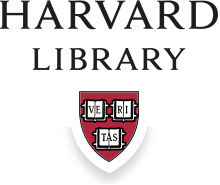Article | Open Access | Published: 2 December 2014
Investigating Consumer Behavior towards Self- Medication in the Light of Uncertainty Avoidance
-
Faryal Salman
SZABIST, Karachi
-
Usman Ali Warraich
Business Administration Department Indus University, Karachi
-
Ishtiaq Ahmed
Bahria University, Karachi
|
Views:
|
320
|
| |
Downloads:
|
264
|
Abstract:
In pursuit of seeking the understanding of the implications of Hofstede cultural dimension, the current study assesses the relationship between uncertainty avoidance and incidence of self-medication among the consumers in Pakistan. The research methodology for the study is a triangulation of qualitative and quantitative techniques. Constructs were espoused from previous studies however adaptation was made to suit the researcher needs. The instruments consisted of close-ended questions only. Cross-sectional data for the study has been collected through convenience sampling from a sample size of 300 students studying in different business schools in Karachi, Pakistan. We finally conclude that the working professionals enrolled in business schools generally tend to refrain from self-medication because they consider it risky and that it that could have serious health consequences. However, it was found that people tend to self-medicate for a common type of ailments based on their previous experiences. The findings also support our assumption that a high score on uncertainty avoidance means a low score on behavioral intentions. The findings of the study suggest a significant relationship between behavioral intentions and uncertainty avoidance, measured through perceived risk and risk aversive behavior. The results of the study posit a negative relation between dependent and independent variables.
Keywords:
Consumer Behaviors, Hofstede Model, Uncertainty Avoidance.
Publisher:
ILMA UNIVERSITY
Published:
2 December 2014
E-ISSN:
2409-6520
P-ISSN:
2414-8393
This is an open access article distributed under the terms of the Creative Commons Attribution CC BY 4.0 license, which permits any use, distribution, and reproduction of the work without further permission provided the original author(s) and source are credited.

















